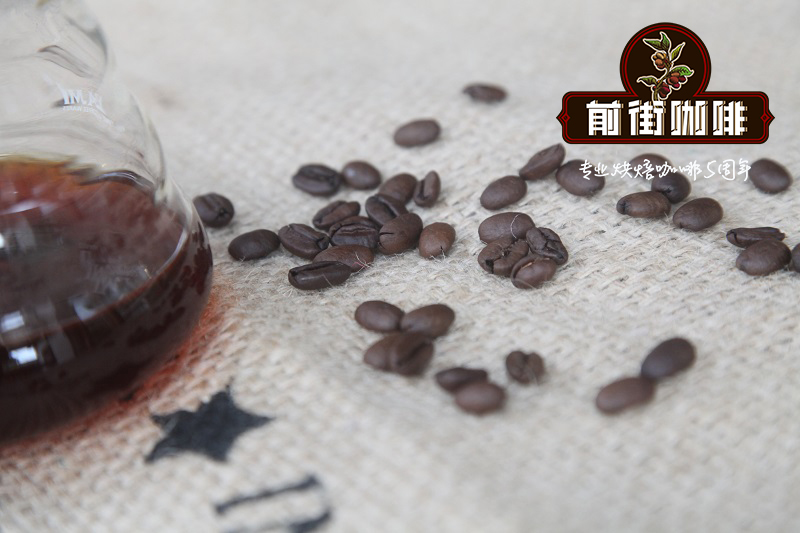Is Guatemalan coffee the best? Is there fair trade certification for Antigua coffee in Guatemala?


Professional coffee knowledge exchange more coffee bean information please follow the coffee workshop (Wechat official account cafe_style)
Guatemala, the cradle of top coffee
With the extension of mountains and great changes in microclimate in Guatemala, in recent years, with the development of the coffee industry driven by national efforts, both quality and planting methods have been greatly improved and changed, and has become a top international coffee supplier.
Guatemalan coffee beans come from the well-known producing area Vivette Nanguo, with caramel, cocoa and wood aromas, deeply loved by consumers.
Fairtrade certified Guatemalan coffee beans are getting harder and harder to buy, because this year their Guatemalan coffee beat other competitors in the 2016 coffee cup test contest (Cup of Excellence Competition), winning eighth place, so now more and more buyers are scrambling for it, and if they don't hurry up, they won't be able to buy it.
Juan Francisco, representative of the Fair Trade Cooperative in Guatemala, said: "the results of this competition have a great impact on producers, because it means that coffee will help them bring more stable income and remuneration."
However, Juan Francisco also mentioned that we should not only pay attention to the quality and yield of coffee beans or expect too much from them. After all, climate change, lower-than-expected harvests, not paying the bill by buyers, and other factors will affect sales, but sales alone are meaningless to the sustainable operation of cooperatives. Therefore, the way for co-operatives to operate is to strike a balance between the needs of producers and the quality of production. All coffee beans are fair trade or organic certification, providing producers with a more stable life by joining fair trade.
From this case, we can know that the operation of Fairtrade has never been just to grow crops well, but to grow crops in a friendly way, while re-establishing the basic human rights that producers should have, including the right to education and medical care, access to stable life and growth opportunities, from raw material production to processing, and even to building brands. Look. Fairtrade coffee beans can also be squeezed into the cup test competition to get such excellent results!
Cooperatives encourage members to grow crops in a friendly way. Generally speaking, crops grown in organic soil are healthier than those grown with fertilizers and pesticides. In addition, the cooperative has recently been committed to setting up a training centre at El Vergel Farm where cooperative producers can share their technology with each other and work with all their partners here on how to produce the best Guatemalan coffee.
Note: 25% of the Fairtrade Community Development Fund needs to be spent on quality improvement programs, and producer organizations can hire agrotechnical personnel or invest in production equipment to improve crop quality and productivity. therefore, in recent years, many Fairtrade cooperatives have won awards in international competitions.
Guatemalan producer partner
Guatemala Vivette Nango Fair Trade Cooperative has been established for more than 40 years and has a total of 20,000 registered members. The fair purchase price and the community development fund (Social Premium) returned by each consumption allow small farmers to buy new trucks and solve transportation problems, while providing advance micro-loans for agriculture, building basic medical and educational facilities, and supplying clean water.
Important Notice :
前街咖啡 FrontStreet Coffee has moved to new addredd:
FrontStreet Coffee Address: 315,Donghua East Road,GuangZhou
Tel:020 38364473
- Prev

What are the steps of cup testing? What's the process? What is the standard of cup test?
Professional coffee knowledge exchange more coffee bean information please follow the coffee workshop (Wechat official account cafe_style) what are the steps of the cup test? What's the process? What is the standard of cup test? Both the export and entrance of coffee beans depend on the results and scores of the cup test, and then go to the baristas and guests. The cup test must be accurately calculated, not simply to taste, coffee content, soaking.
- Next

What tools do I need to prepare for the cup test? What is the ratio of powder to water? What are the steps?
Professional coffee knowledge exchange More coffee bean information Please pay attention to coffee workshop (Weixin Official Accounts cafe_style) What tools do you need to prepare for cup test? What is the ratio of powder to water in the cup? What are the steps? "Before the beans are sent to other parts of the world, they are first tested by the coffee farmers 'association or refining factory where they are produced. That is, they are tested to confirm the aroma and taste of the beans.
Related
- Detailed explanation of Jadeite planting Land in Panamanian Jadeite Manor introduction to the grading system of Jadeite competitive bidding, Red bid, Green bid and Rose Summer
- Story of Coffee planting in Brenka region of Costa Rica Stonehenge Manor anaerobic heavy honey treatment of flavor mouth
- What's on the barrel of Blue Mountain Coffee beans?
- Can American coffee also pull flowers? How to use hot American style to pull out a good-looking pattern?
- Can you make a cold extract with coffee beans? What is the right proportion for cold-extracted coffee formula?
- Indonesian PWN Gold Mandrine Coffee Origin Features Flavor How to Chong? Mandolin coffee is American.
- A brief introduction to the flavor characteristics of Brazilian yellow bourbon coffee beans
- What is the effect of different water quality on the flavor of cold-extracted coffee? What kind of water is best for brewing coffee?
- Why do you think of Rose Summer whenever you mention Panamanian coffee?
- Introduction to the characteristics of authentic blue mountain coffee bean producing areas? What is the CIB Coffee Authority in Jamaica?

